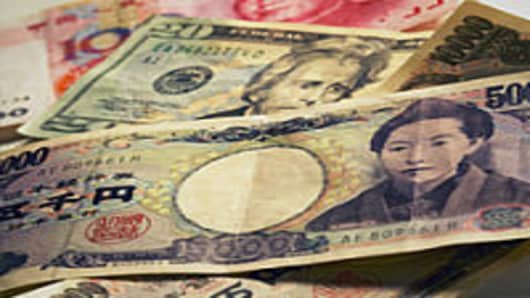China should be at the center of the 2012 Republican campaign for the White House. Unless Governor Romney emphasizes specific solutions for creating jobs by ending unnecessary outsourcing to the Middle Kingdom, he won’t win.
President Obama'seconomy is a disaster—since the recovery began in June 2009, economic growth has averaged a paltry 2.4 percent and unemployment hangs stubbornly above 8 percent.
Ronald Reagan, like President Obama, inherited a deeply troubled economy. However, President Reagan implemented radical solutions to free up the private sector, and as he campaigned for reelection, the economy was growing at 6 percent.
Nowadays, the economy suffers from too little demand and overregulation. Consumers are spending again, but too many dollars go abroad to purchase foreign oil and Chinese goods without returning to purchase U.S. exports—thanks in significant measure to Congressional Democrats and President Obama blocking development of U.S. offshore and Alaskan oil resources, and President Obama’s failure to confront Chinese mercantilism.
China exports to the United States four times more than it buys here, because it maintains an undervalued currency and blocks imports of competitive U.S. products. For example, it maintains a 25 percent tariff on automobiles—the U.S. tariff is less than 3 percent—and requires U.S. companies to establish joint ventures with Chinese companies to gain access to its markets.
In new industries, like solar panels and windmills, Beijing has required suppliers to locate in China. Faced with choosing between producing in the United States or China, manufacturers can service both markets from China.
Repeatedly, the Obama administrations makes narrow complaints in bilateral forums and the World Trade Organizaton, but once factories are established it is hard to relocate production even when Beijing relents and drops its administrative restrictions on foreign-made products.
The practice most destructive to U.S. interests is China’s 40 percent undervalued currency, which artificially underprices Chinese goods on American store shelves. Licensing and regulating the price of dollar-yuan conversions accomplish this, and official intervention in currency markets.
Beijing mops up excess demand for yuan, which would force its value higher, by printing and selling yuan to importers for dollars and euro, and then uses the proceeds to invest in U.S. Treasurys, and oil and other mineral deposits around the world. The latter enhances Beijing’s diplomatic clout, and its ability to justify its authoritarian brand of state-managed capitalism.
Currency manipulation
This currency manipulation violates China’s WTO commitments and International Monetary Fund rules. Campaigning for the White House, Barack Obama promised to address this problem, but since becoming president has refused to even admit China manipulates its currency, or bring complaints in the WTO and IMF. Successful suits would permit the United States and the EU to impose broad tariffs on all imports from China, and force Beijing to end these practices.



